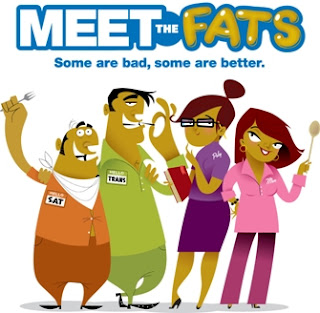The fat chat gets me every time, fat gets a bad rap these days ~ there is much to say about fat but I won't delve too deeply into the science, but I will say the right fats will help you become healthy, fit and vibrant.
Obesity and weight is a massive problem in our society, I would go so far as to say it is an epidemic and it is because people don't take responsibility for their own wellness or do their homework to understand what is GOOD for you vs. what is BAD for you. The burden and consequences of obesity affect us all. Whether you are over weight or not, wouldn't it make sense to look after your own well-being both physically and financially? The evidence is pretty clear - obesity significantly increases the rate of chronic disease and physiological health. Another study, using a comparable methodology and looking at 18 obesity-related chronic diseases, estimated the economic burden of obesity to be as high as $7.1 billion (2006 dollars), that was 10 years ago! Imagine!!
Sugar makes you FAT not FAT!
You can’t burn all the sugar you eat. Inevitably, your body stores it as fat, creating insulin resistance and overall metabolic havoc among other mayhem.
Low-fat diets tend to be heart-unhealthy, high-sugar diets.
When people eat less fat, they tend to eat more starch or sugar instead.
Saturated fat is not your enemy.
A review of all the research on saturated fat published in the American Journal of Clinical Nutrition found no correlation between saturated fat and heart disease. As with all fats, quality becomes key here. The fats in a fast-food bacon feedlot cheeseburger will have an entirely different effect than saturated fat in coconut oil. It is not all the same.
Some fats are unhealthy.
They include TRANS FATS and inflammatory VEGETABLE OILS. These are the BAD guys ~ they are hidden in almost every convenience food and fried food; pizza, donuts, cupcakes, microwave popcorn. And don’t just look at the trans fat content of the food; look on the label for the word hydrogenated and make sure it doesn’t have that on it.
Everyone benefits from more omega-3s.
About 99 percent of North Americans are deficient in OEMGA -3s. Ideal ways to get them include eating wild or sustainably raised cold-water fish, omega-3 rich eggs, and taking an omega-3 supplement.
Eating fat can make you lean.
Healthy cell walls made from high-quality fats are better able to metabolize insulin, which keeps blood sugar better regulated. Without proper blood sugar control, the body socks away fat for a rainy day. The right fats also increase fat burning, cut your hunger, and reduce fat storage. I eat fat with every meal, and after being diagnosed with Hypothyroidism and Hashimotos I made it a mission to watch what I eat and include fats in my diet. The right fats can improve your mood, skin, hair, and nails while protecting you against type 2 diabetes, dementia, cancer, and much more.
MEET THE GOOD GUYS
Walnuts, almonds, pecans, macadamia nuts, cashews
Pumpkin, chia, and hemp seeds
Fatty fish - sardines, mackerel, herring, and wild salmon that are rich in omega-3 fats. Shellfish, clams, oysters, mussels, shrimp, scallops and crab, calamari and octopus.
Extra-virgin olive oil, coconut oil, coconut butter, avocados and avocado oil, hemp oils, olives, cacao butter, dark chocolate
Grass-fed beef, lamb, bison, free range chicken, turkey. Eggs, butter
Unsweetened nut and seed milks(almond, cashew, hemp, hazelnut).
AND THE BAD GUYS
Safflower, soybean, corn, and canola oils; hydrogenated or partially hydrogenated oils, margarine and shortening.
Some would argue, tuna, milk, yogurt, cheese, cream and peanuts are bad sources of fat. I would just say, if you are facing a choice choose the full fat milk, Greek yogurt. Items that are fat free are substituted with sugar. Peanuts won't hurt you but with all the nuts and nut butter choices it is pretty boring - again look at the label on your Skippy Peanut Butter!
The take-home here is that most of your fat-cell biology is controlled by the quality and type of the food you eat. That explains why we should eat a quality fat, whole-food diet that’s lower in refined carbohydrates, low glycemic and high fiber food.
The Glycemic Index (GI) is a scale that ranks carbohydrate-rich foods by how much they raise blood glucose (sugar) levels compared to a standard foods. https://www.diabetes.ca/diabetes-and-you/healthy-living-resources/diet-nutrition/the-glycemic-index

No comments:
Post a Comment